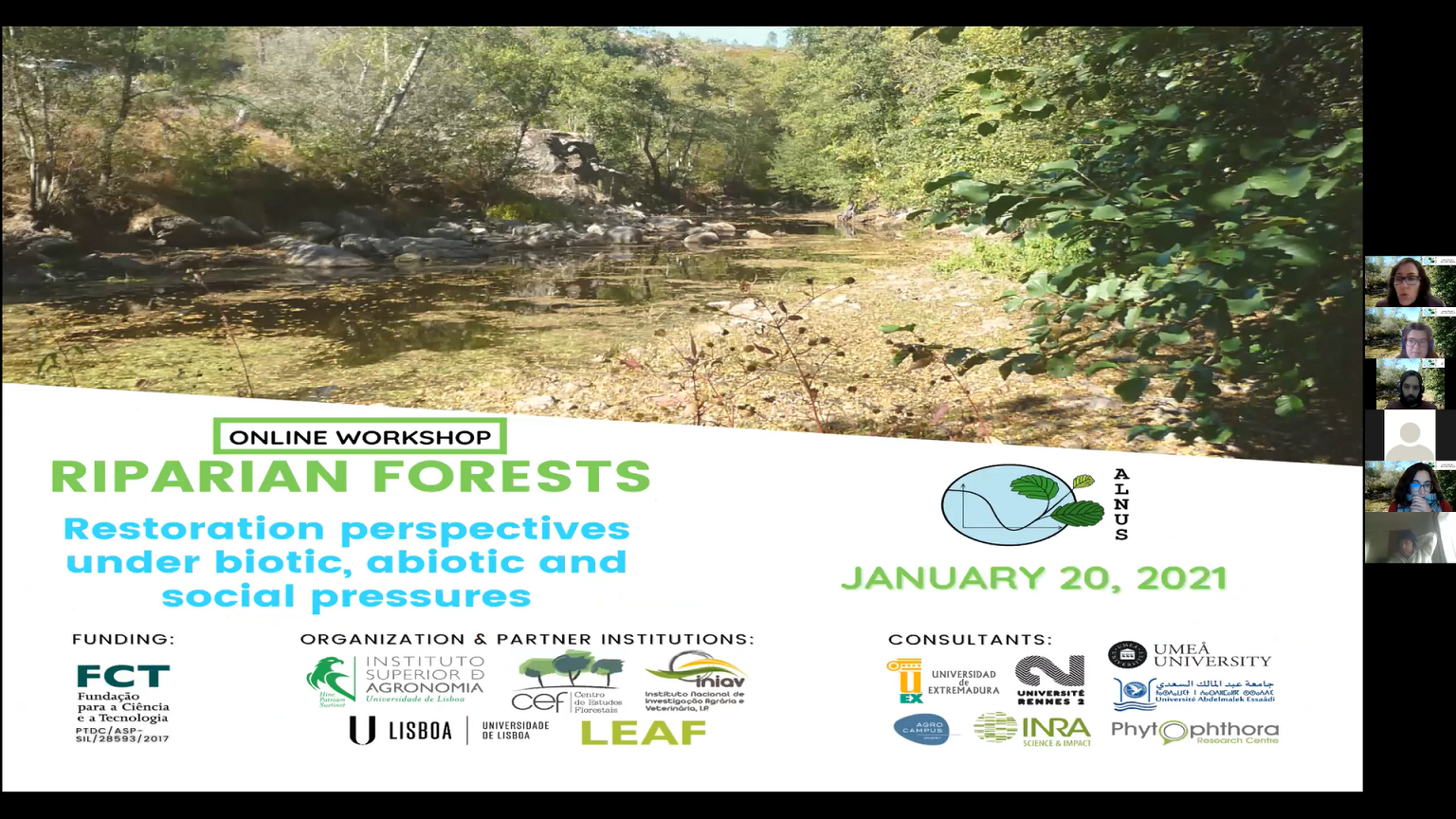
The team of project ALNUS organized the online Workshop “Riparian Forests – Restoration perspectives under biotic, abiotic and social pressures” on January 20th 2021, as part of the Project Mid-Term Meeting, to disseminate the results obtained during the first two years of the project. The workshop occurred from 9h to 12h30 (Lisbon time), and was attended by 161 participants of 15 countries, covering diverse profiles, such as public administration representatives from local, basin and national level, private companies, NGOs, students and members of academia; and diverse interests such as riparian ecology, forest pathology, ecological restoration, and alder ecology and management.
After a quick introduction to the goals of the Workshop by the PI of ALNUS project, Dr. Patricia María Rodríguez González (Centro de Estudos Florestais, Instituto Superior de Agronomia / CEF-ISA), the floor was given to a session of presentations with three invited speakers, references in their areas of study. Dr. Thomas Jung (Mendel University in Brno, Czech Republic) opened the session with the presentation “Phytophthora – an increasing threat to riparian Alnus forests and other natural ecosystems”. He was followed by Dr. Roland Jansson (Umeå University, Sweden), who presented “Restoring riparian zones degraded by abiotic pressures multiple pathways toward sustainable river systems”. The invited session was closed by Dr. Simon Dufour (Université de Rennes 2, France) with the presentation “Managing riparian as socio-ecosystems: are we missing the social dimension?”.
For the second part of the workshop, the youngest team members were in charge to showcase the first ALNUS project outputs. Firstly, MSc. Inês Gomes Marques and Dr. Cristina Vieites Blanco, presented the recently obtained results, and opportunities to participate in the project, while MSc. Arthur Cupertino launched the ALNUS Project website to the public. The workshop was closed by a participative discussion about the status of riparian forest conservation and the increasing threat of Phytophthora spread across European hydrographic networks.
As complement to the Mid-Term Meeting and the task 5 of the project, a participatory activity with appointed experts was held on the afternoon (14h to 18h). The aim was to develop the ADnet (Alder Decline network), a management tool to predict alder vulnerability to Phytophthora infection across hydrographic networks. The experts were grouped into three Focus Groups to evaluate and discuss a proposed draft model using a Bayesian Network approach. The Focus Group activity represented the first Expert Knowledge input to the ADnet tool, which will continue in development.
Our team believes that the meetings was a success and is thankful for all the participation and feedbacks received during the sessions.
You can download the Workshop Proceedings Report here.